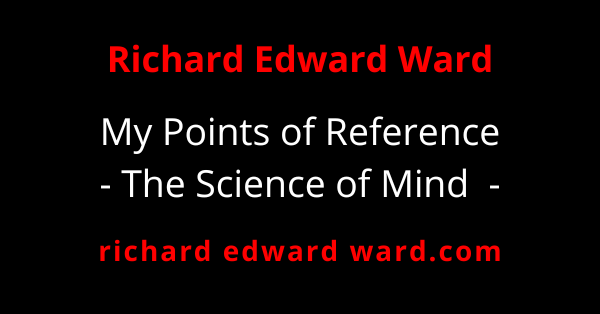The Science of Mind originally published by Ernest Holmes in 1926 emphasizes positive thinking, the influence of circumstances through mental processes, recognition of a creative energy source and of natural law, and the use of what Holmes called Spiritual Mind Treatment or Affirmative Prayer.
In The Science of Mind Holmes sets forth a new relationship between mankind and God.
Holmes shows how people can actively engage their minds in creating change throughout their lives. He provides detailed steps of how to pray and meditate, heal oneself spiritually, find self-confidence, and express love.
The Science of Mind Recommended Reading
The 10 Core Concepts of Science of Mind
The Science of Mind philosophy is based on 10 Core Concepts that serve as the organizing principles of the Universe.
- Oneness – God is the Source of all that is, and God is all that is. Everything in the Universe is made of the God substance and is a unique, individualized expression of God.
- Triune Nature – God expresses Itself in three aspects –Spirit, Soul, and Body. Each human being also has these same three aspects. Thus, there is God as macrocosm, human beings as microcosm.
- Creative Nature – God thinks, and the world comes into being. Likewise, all human accomplishments originate in thought. Our human thinking process is a reflection of the Divine Creative Process in microcosm.
- Prayer – All Good is eternally available and ready to flow into human experience. We activate this flow by means of prayer. Through affirmative prayer, or spiritual mind treatment, we increase our consciousness of Good eternally flowing to us.
- Wholeness – Spirit is a transcendent, perfect Whole that contains and embraces all seeming opposites. As human beings, we have free will and can choose what we experience, whether it be positive or negative. The same Principle that brings us freedom, prosperity, and joy also allows us to experience bondage, lack, or misery, according to our consciousness.
- Abundance – All that anyone will ever need or desire is already provided by Universal Abundance. This applies to everybody, not just some people. Every person is heir to the riches of Creation, without regard to merit.
- The Reciprocal Universe – For every visible form there is an invisible counterpart. This means that what we receive corresponds to what we imagine and believe we can receive, the Law of Mental Equivalents. This also is the Golden Rule: that what we do to others will be done also to us, the Law of Cause and Effect.
- Forgiveness – In the Eternal Now, there can be no place for Divine anger, unforgiveness, or punishment. If we perceive a need for forgiveness, this is a human condition. Human forgiveness is the process that frees us to live in the Eternal Now. It is the essential step before real spiritual growth can flourish. Science of Mind teaches that the ultimate goal of life is complete emancipation from all discord of every nature, and that this goal is sure to be attained by all.
- Immortality – The Universal Truth about life is that life never ends. What we call death is simply the changing of one form of life for another. Death, the belief and perception that life must come to an end, is a human concept. As in birth the invisible becomes visible, so in dying the visible again becomes invisible. Life continues on another plane when the body has outlived its usefulness.
- The Christ – Christ is not a person, but a Principle, a Universal Presence, the Universal Image of God that is present in all Creation. This is the concept of the Cosmic Christ, which is present within every person. Each human individual partakes of the Christ nature to the degree that he or she recognizes the Cosmic Christ within and lives out of that revelation. Jesus of Nazareth was a human individual who revealed the Christ Nature to the highest degree ever known.
The Science of Mind Organizations
- The Science of Mind served as the foundation text for the Church of Religious Science.
- Centers For Spiritual Living carry on the traditions begun in the Church of Religious Science.
Learn More About The Science of Mind
Learn more about The Science of Mind.

My Points of Reference
Explore with Richard
- Explore and learn more about Reconnecting With Spirit.
- Explore My Points of Reference.
- Explore My Teachers, Guides, and Mentors.
- Explore My Recommended Reading.
- Explore My 365 Daily Inspiration.
"Be practical and expect miracles when you just take the first step forward every day." -Richard Edward Ward
